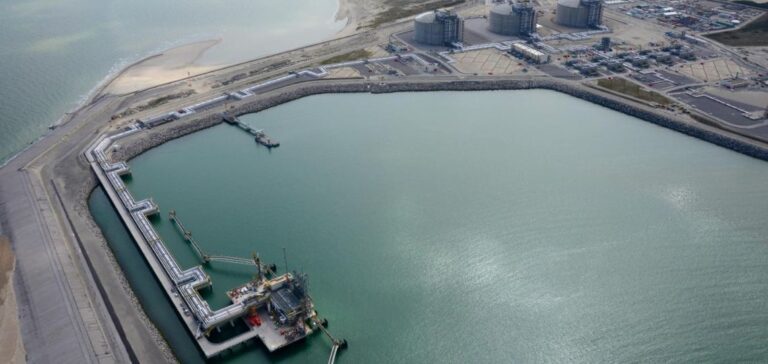The Rouen Administrative Court has rejected a petition lodged by elected representatives and environmental associations against TotalEnergies’ Le Havre floating LNG terminal project.
Controversy surrounding the LNG terminal project in a context of energy tensions
In a decision dated August 28, which AFP has been able to consult, the interim relief judge ruled that “(n)one of the grounds put forward (….) against the order in dispute (…) is manifestly of such a nature (…) as to create serious doubt as to the legality of the Seine-Maritime prefect’s order”.
The Europe Ecologie-Les Verts (EELV) deputy and the France Nature Environnement (FNE) association had already lodged three appeals against the project, which was designed to create a new gas entry point into France against a backdrop of heightened energy tensions since the start of the war in Ukraine.
These three requests had already been rejected in July by the Rouen Administrative Court.
Ecologist MP Julien Bayou has described the LNG terminal project as “deleterious for safety and environmental reasons” and believes it has become pointless.
Interim injunction against the planned LNG terminal: plaintiffs warn of irreversible risks
According to the plaintiffs, the reason for the application for interim relief is that the “judge on the merits will not be able to give a ruling before the facility comes into service, scheduled for September 15, 2023”, whereas “the damage likely to be caused to the environment by the execution of the decree is irreversible”, according to the decision consulted by AFP.
In July 2022, the public authorities selected TotalEnergies’ floating LNG terminal project as a new import point for liquefied natural gas (LNG) at Le Havre.
This is one of the group’s two FSRU (floating regasification unit) vessels, “which will inject up to 5 billion m3 of natural gas (around 60% of the Russian gas imported by France in 2021) per year into the national grid”, according to a press release from the Seine-Maritime prefecture.
France is supplied by four LNG import terminals (two at Fos-sur-Mer, one at Montoir-de-Bretagne, and one at Dunkirk), and would like to secure this supply with a new terminal.






















